House is a music genre characterized by a repetitive four-on-the-floor beat and a typical tempo of 120 beats per minute. It was created by DJs and music producers from Chicago's underground club culture in the early/mid 1980s, as DJs began altering disco songs to give them a more mechanical beat.

Francis Warren Nicholls Jr., known professionally as Frankie Knuckles, was an American DJ, record producer, and remixer. He played an important role in developing and popularizing house music, a genre of music that began in Chicago during the early 1980s and subsequently spread worldwide. In 1997, Knuckles won the Grammy Award for Remixer of the Year, Non-Classical. Due to his importance in the development of the genre, Knuckles was often called "The Godfather of House Music".

Dirty Mind is the third studio album by American singer-songwriter, and multi-instrumentalist Prince. It was released on October 8, 1980, by Warner Bros. Records and produced entirely by Prince at his home studio in Minneapolis, Minnesota earlier that year from May to June. Dirty Mind has been considered by critics to be his most creative and boldest album, setting the standard for his artistic direction in the following years.
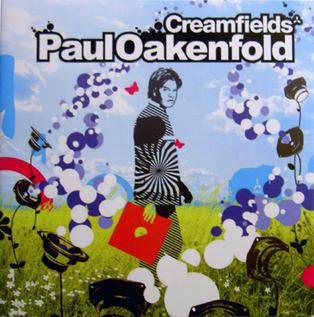
Creamfields is the fifteenth DJ mix album by British electronic producer and disc jockey Paul Oakenfold, released in 2004. The double album was inspired by the annual Creamfields festival which at the time took place at the "Old Liverpool Airfield" organised by the Cream brand where Oakenfold had often performed. The album was released to commemorate Oakenfold's performance at the sixth annual Creamfields festival which took place several weeks after the album's release on 28 August 2004. Oakenfold performance at the festival was headlining the Cream/Goodgreef and Mixmag Arena. Creamfields was also the third in a series of mix albums of the same name commemorating the festival, with previous albums by different DJs being released in 2000 and 2001, with both releases carrying the same name. Oakenfold's Creamfields was considered a relaunch of the series

Get Ready is the seventh studio album by English rock band New Order. It was released on 27 August 2001 in the United Kingdom by London Records and on 16 October 2001 in the United States by Reprise Records. It was the band's first studio album in eight years, following 1993's Republic, and was their last to feature the original lineup.
Balearic beat, also known as Balearic house, Balearic, Ibiza house or Ibizan chillout, is an eclectic blend of DJ-led dance music that emerged in the mid-1980s. It later became the name of a more specific style of electronic dance/house music that was popular into the mid-1990s. Balearic beat was named for its popularity among European nightclub and beach rave patrons on the Balearic island of Ibiza, a popular tourist destination. Some dance music compilations referred to it as "the sound of Ibiza", even though many other, more aggressive and upbeat forms of dance music could be heard on the island, such as Balearic trance.
Dubstep is a genre of electronic dance music that originated in South London in the early 2000s. The style emerged as a UK garage offshoot that blended 2-step rhythms and sparse dub production, as well as incorporating elements of broken beat, grime, and drum and bass. In the United Kingdom, the origins of the genre can be traced back to the growth of the Jamaican sound system party scene in the early 1980s.

The Goa Mix is a two-hour DJ mix by British musician and DJ Paul Oakenfold. It was originally broadcast on BBC Radio 1 as an Essential Mix on 18 December 1994 after the producer of the show, Eddie Gordon, chose Oakenfold to produce an eclectic DJ mix for the show which featured a burgeoning variation of electronic styles, having begun the previous year. Oakenfold had, at this point, developed his own unique Goa trance sound, influenced by his time at hippy gatherings on beaches in Goa, and employed it heavily into the mix, which also made pioneering use of film score samples. Oakenfold used the mix as an experiment in which he tried to fuse electronic music, especially trance music, with film score music, and then to overlay the result with vocal parts, samples and additional production. The mix was split into two parts, later referred to as the Silver Mix and the Gold Mix respectively. Reflecting the Goa influence, the album title did not evolve beyond its simplistic working name.

Perfecto Presents: Another World is the twelfth DJ mix album by British electronic music producer Paul Oakenfold, released in 2000. It is the second instalment in his Perfecto Presents series, a series of DJ mix albums themed around Oakenfold's label Perfecto Records. The album employs Oakenfold's progressive trance sound and sees a return to the Goa trance sound he had helped popularise with Goa Mix (1994) and Perfecto Fluoro (1996). Similar to those albums, it also features a more eclectic array of music genres, featuring music from film soundtracks, the ethereal wave band Dead Can Dance and a remix of a Led Zeppelin song. Although the album received mixed reviews from critics, at the time of release, it became the biggest-selling DJ mix album in the United States, where it reached the Top 50 of the Top Electronic Albums chart.

Cross is the debut studio album by French electronic music duo Justice. It was first released digitally on 11 June 2007, and later on 18 June through Ed Banger Records and Because Music in most countries and Vice Records in the United States.
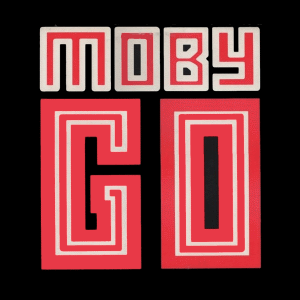
"Go" is a song by American electronica musician Moby, released in March 1991 by record label Instinct as the first single from his self-titled debut album (1992). It peaked within the top ten of the charts in the Netherlands and the United Kingdom. NME ranked the song number 41 in their list of "Singles of the Year" in December 1991.

"Fly Life" is a song by English electronic dance music duo Basement Jaxx from their fourth extended play, EP3, released in 1996. The track was largely based on the 1996 single "Live Your Life with Me", which they produced for vocalist Corrina Joseph, their collaborator since 1995 in order to make "proper songs".
Katalyst is an Australian DJ and producer. He won awards at the 2002 Australian Dance Music Awards for Best Album and Best Producer.
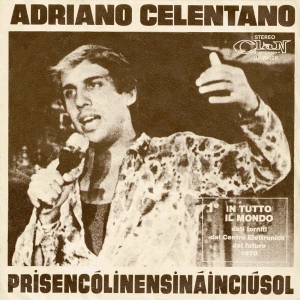
"Prisencolinensinainciusol" is a song composed by the Italian singer Adriano Celentano, and performed by Celentano and his wife Claudia Mori. It was released as a single in 1972. Both the name of the song and its lyrics are gibberish but are intended to sound like English in an American accent.
Paul Rose, usually known as Scuba, is a British electronic musician, now based in Berlin. Described as 'one of dance music's most inventive producers', he has released five albums, numerous singles and EPs, and a handful of compilation and mix albums. His style has been described as dubstep with a later 'shift toward a brighter and more eclectic approach to production'. In 2013, he won an award for Best Live Act from DJ Mag.
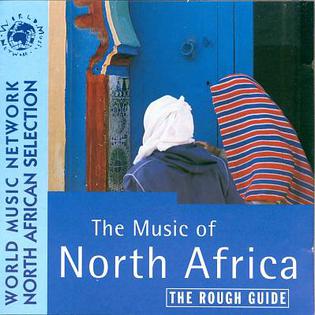
The Rough Guide to the Music of North Africa is a world music compilation album originally released in 1997. Part of the World Music Network Rough Guides series, the album contains five Algerian tracks, five Egyptian, two Sudanese, and two Moroccan, focusing mainly on modern music but including some traditional works. The compilation was produced by Phil Stanton, co-founder of the World Music Network.

Ocean of Sound is a 1996 compilation album compiled and produced by English musician and author David Toop. The two-disc, cross-licensed "various artists" compilation contains 32 tracks culled from a variety of musical sources, including dub, exotica, free jazz, and field recordings. Toop compiled the recordings to serve as both a historical survey of ambient music and an aural companion to his 1995 book Ocean of Sound: Aether Talk, Ambient Sound and Imaginary Worlds.

The Rough Guide to Salsa is a world music compilation album originally released in 1997. Part of the World Music Network Rough Guides series, the album gives broad coverage to the salsa genre of Latin America, focusing on classic styles. Seven of the fourteen tracks are by Cuban musicians, five are Colombian, and one each is Venezuelan and American. The compilation was produced by Phil Stanton, co-founder of the World Music Network. Liner notes were written by Tom Andrews. This was the first of three similarly named albums: the second was released in 2007; the third, in 2012.

Psychedelic funk is a music genre that combines funk music with elements of psychedelic rock. It was pioneered in the late 1960s and early 1970s by American acts like Sly and the Family Stone, Jimi Hendrix, and the Parliament-Funkadelic collective. It would influence subsequent styles including '70s jazz fusion and the '90s West Coast hip hop style G-funk.
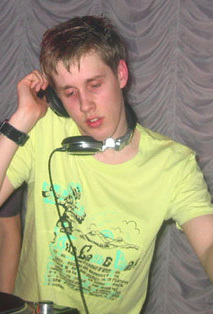
Matthew Lee, known professionally by his stage name Gammer, is an English music producer and DJ. He is best known for his association with UK hardcore, of which he is described as an icon. He is also the co-founder of the Together We Rise record label, which is dedicated to hardcore music.















